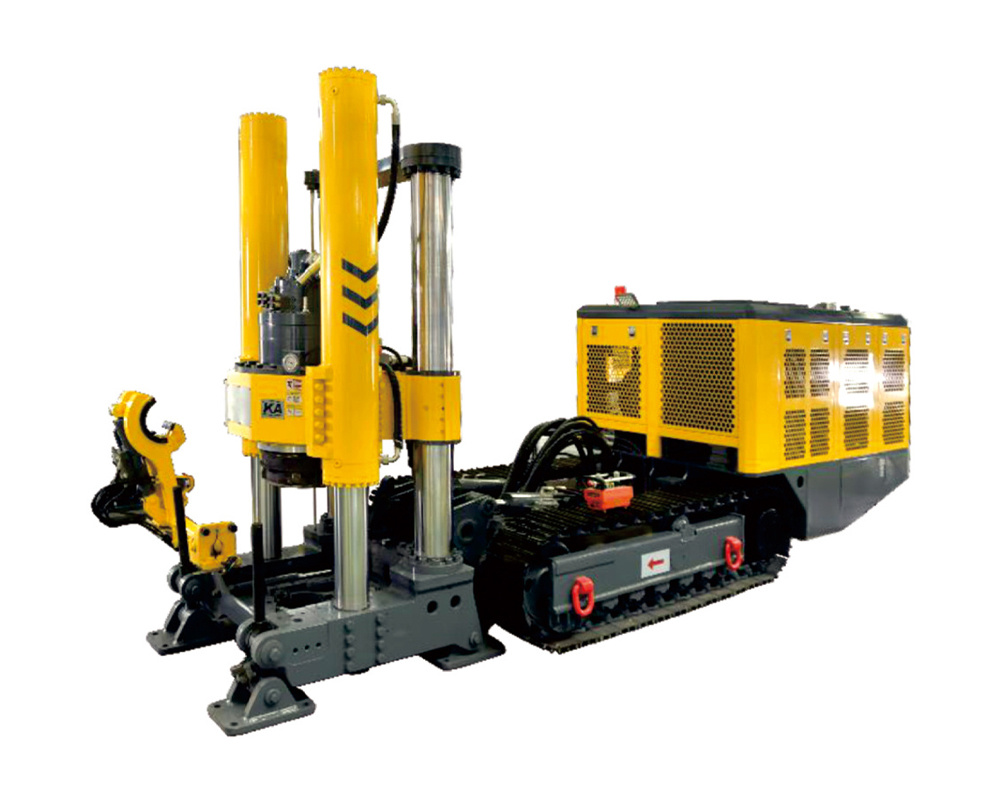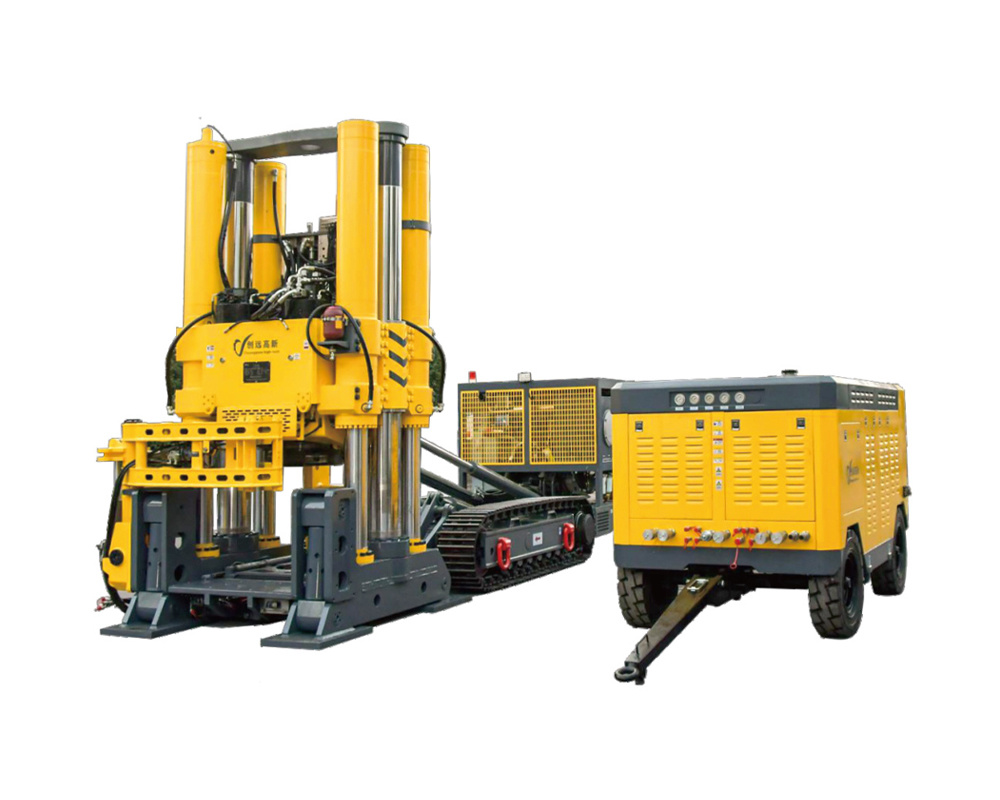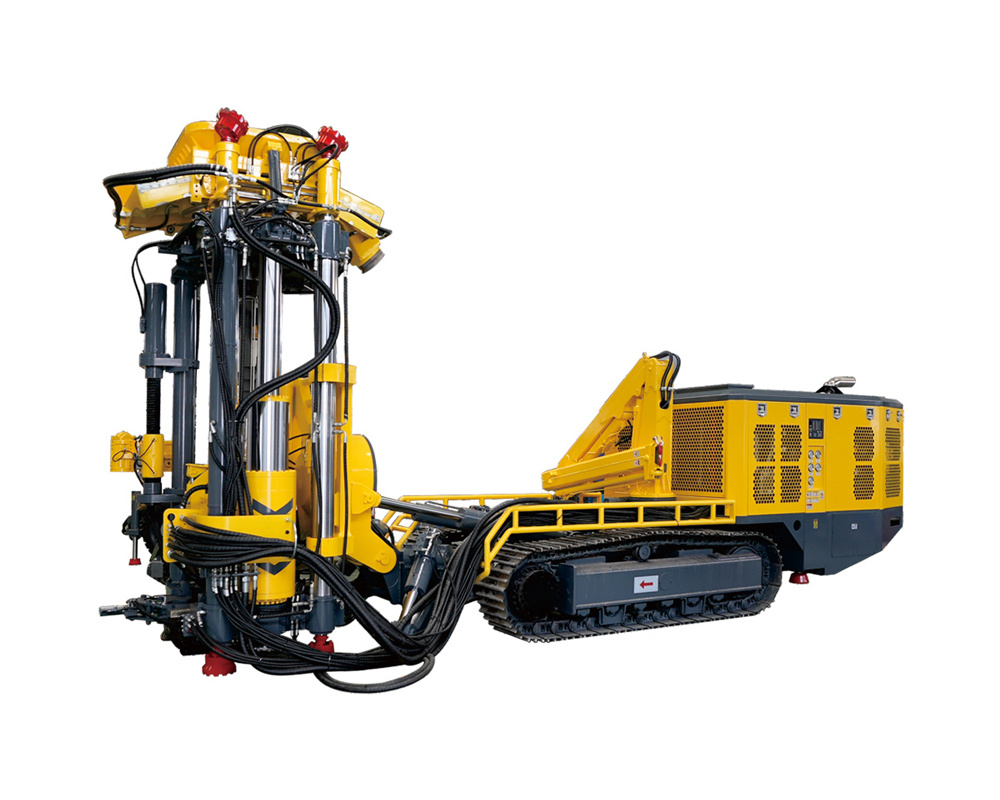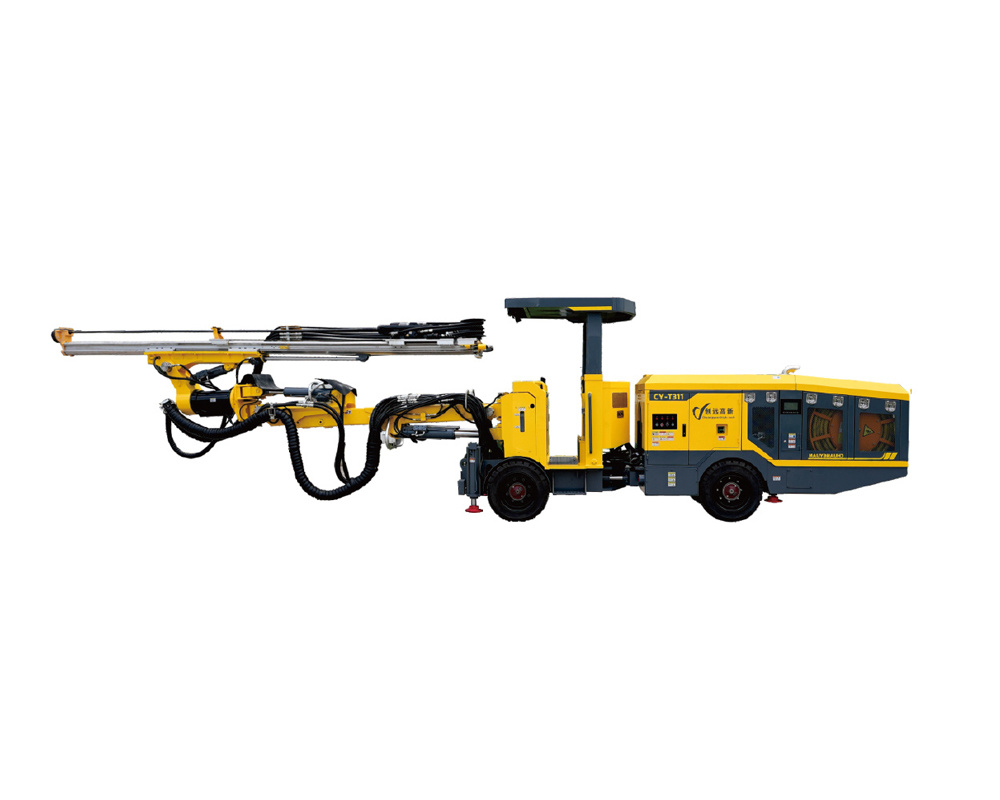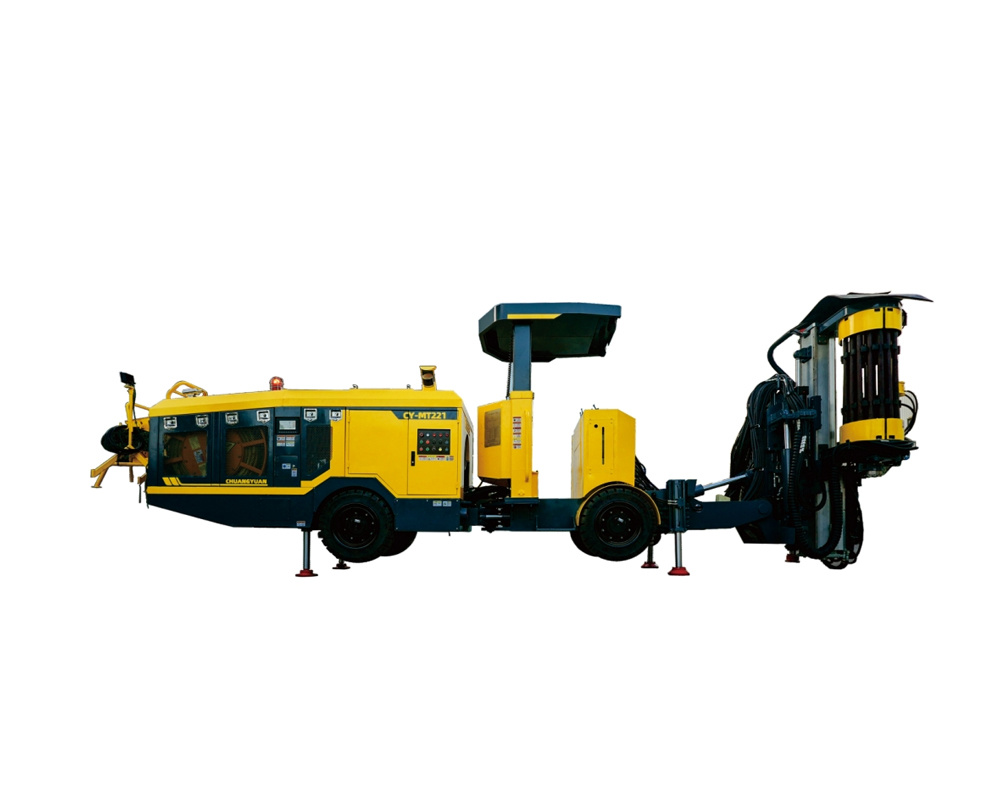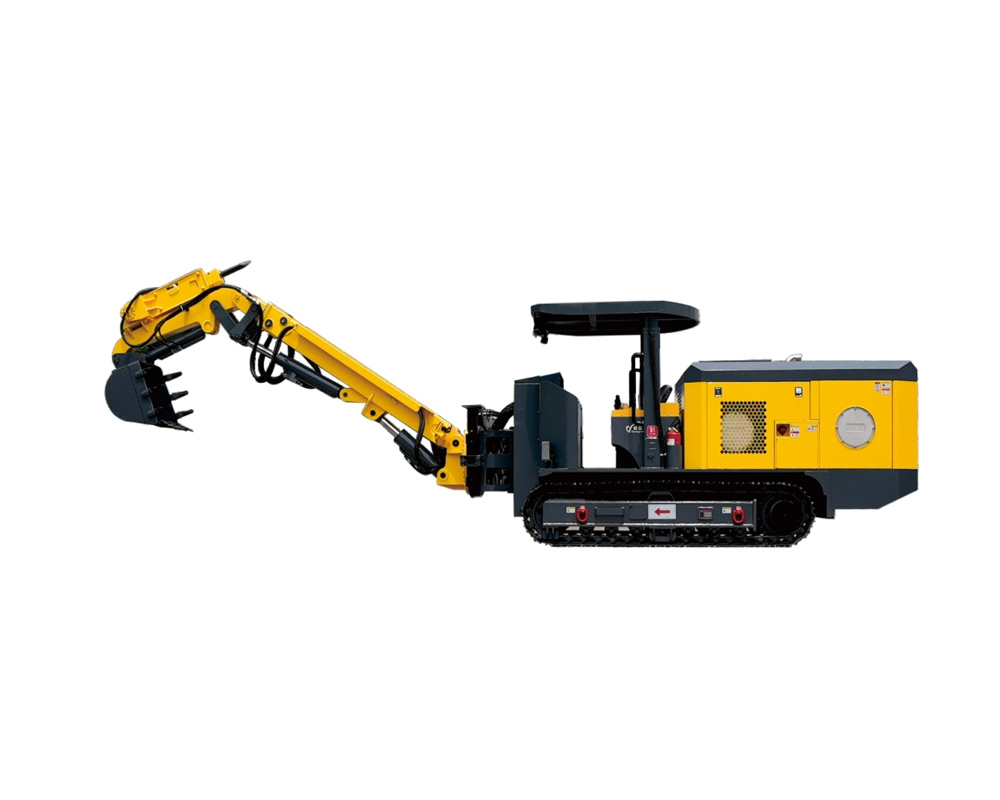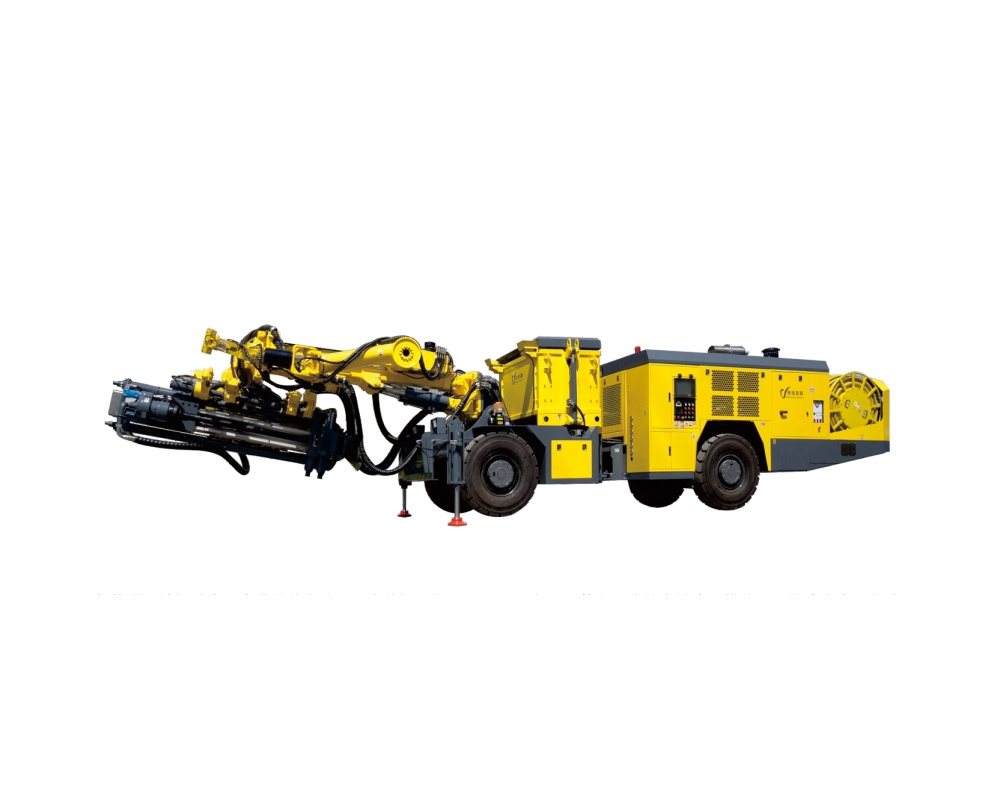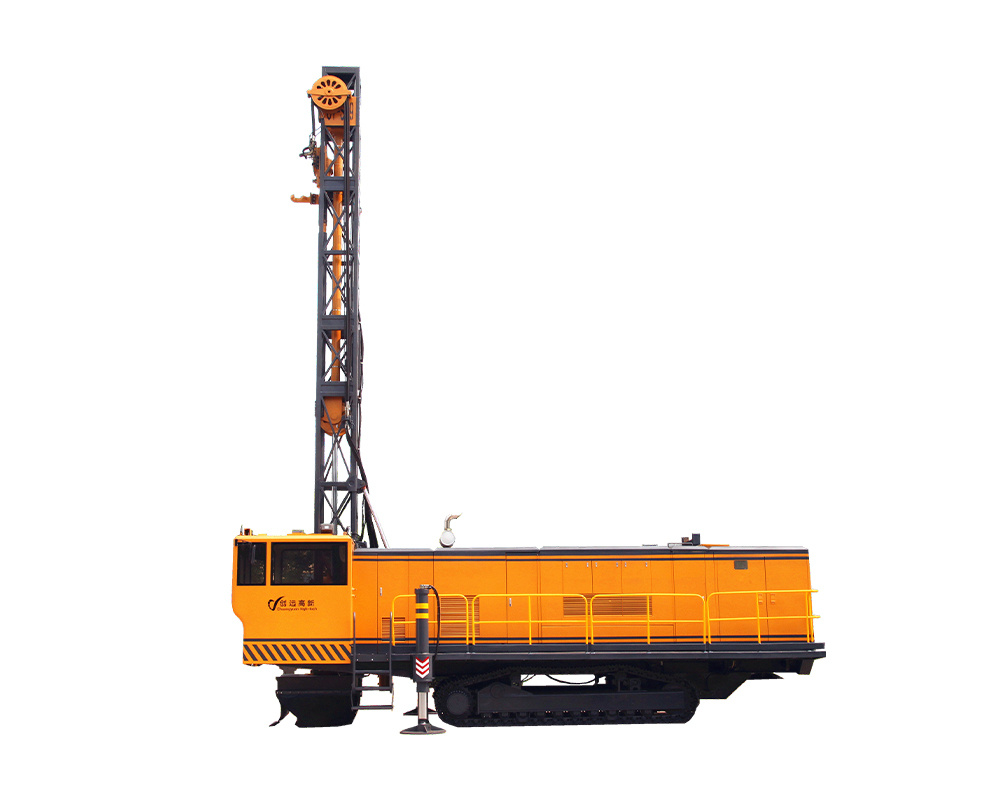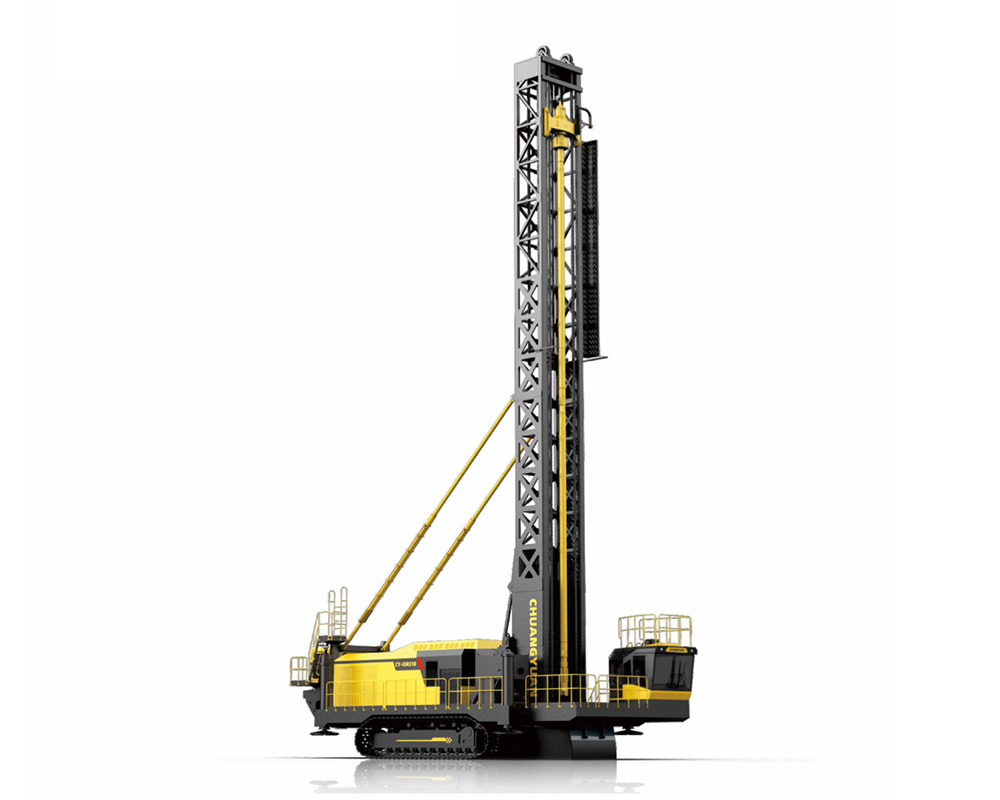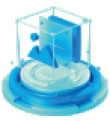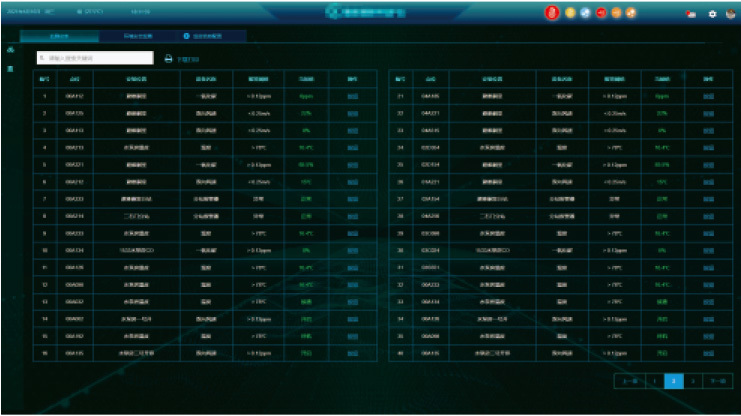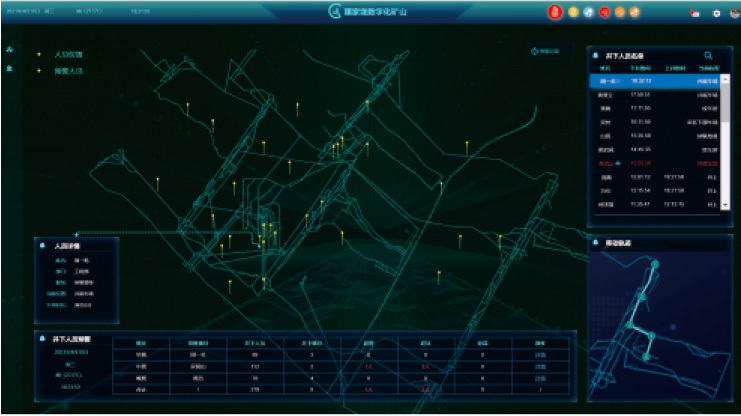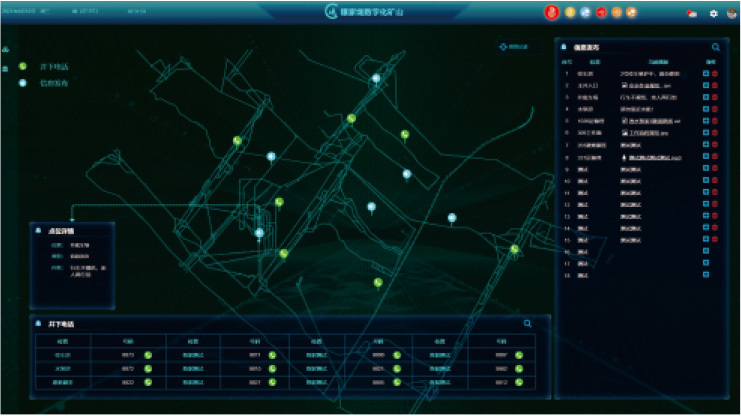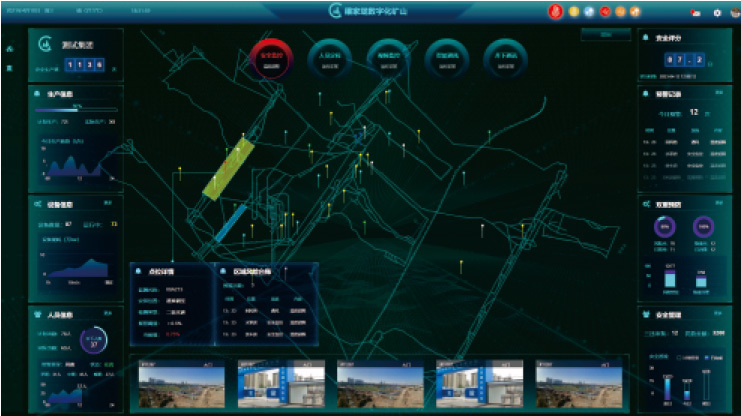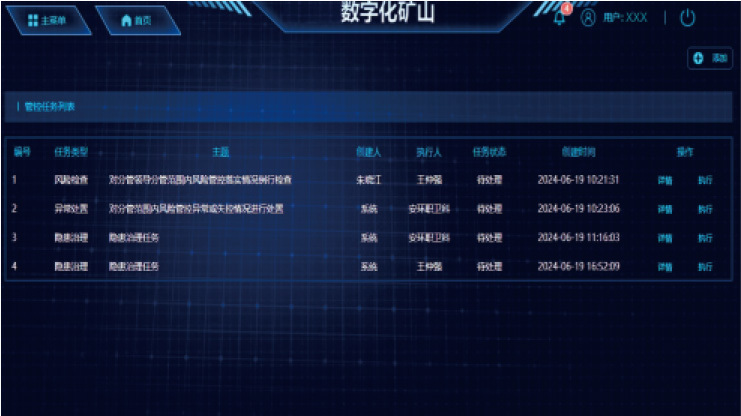-
-
-
-
Service
-
Contact Us
Intelligent mining platform
The intelligent mining management and control platform integrates cloud computing, big data, Internet of Things (IoT), 5G communication, artificial intelligence, and 3D visualization technologies with automated mining equipment at the foundational level. It focuses on subsystems such as underground communication, personnel positioning, equipment monitoring, environmental monitoring, dual prevention, and production management. This integration enables comprehensive access for a range of intelligent devices. By applying artificial intelligence to analyze and predict integrated data from these systems, the platform forms a complete intelligent mining system. It effectively guides mining enterprises towards a scientific and rational transformation and upgrade to intelligence, promoting the "safe, green, and efficient" development of the mining industry.
System Functions

Based on AI self-learning Implementing intelligent control, for example, under the condition that the water level in the reservoir meets requirements, the system can control the start and stop of the water pump based on the principle of peak shaving and valley filling. |
Report printing According to production operational requirements, the system provides daily, monthly, and annual production reports, and generates parameter statistical tables for printing based on production needs. |
Collection and monitoring of operational parameters Real-time monitoring and transmission of operational and protection parameters for motors and pumps. Personnel in the surface scheduling room can observe the operational parameters of motors, pumps, and other equipment in real-time. |
|
Multiple control methods The system supports several operation modes: network control, local automatic control, local manual control, and control via the startup cabinet panel. |
Fault reminder The system provides a list of reminders for equipment electrical parameters, pressure exceeding limits, pump faults, and other alert messages. |
Risk linkage The system automatically analyzes personnel and equipment associated with risk points, sends danger alerts, and broadcasts evacuation instructions. |
System platform
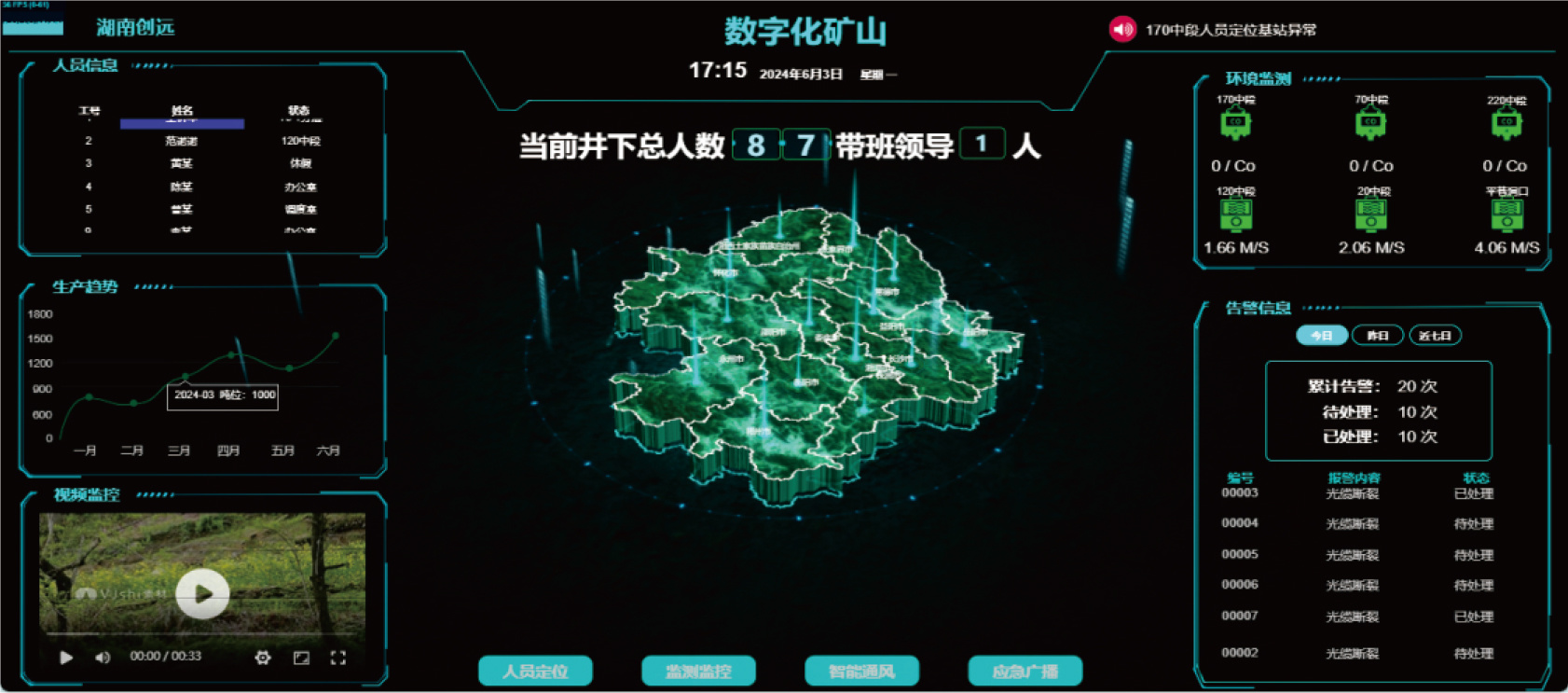
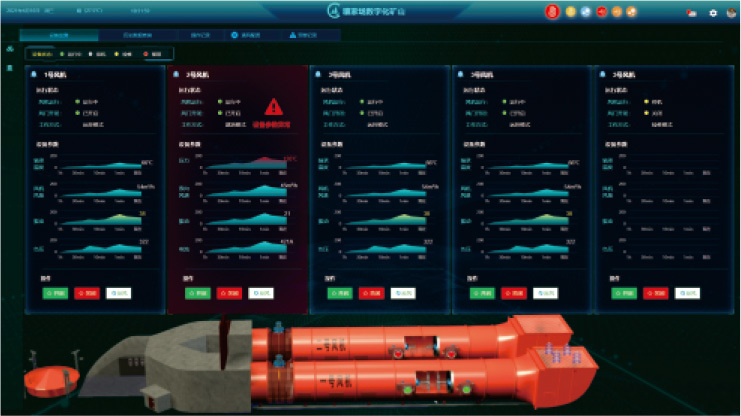
Intelligent ventilation The system monitors real-time operating conditions of fans including voltage, current, vibration, airflow, pressure, and temperature. It enables remote one- click start and stop of fans, one-click rearrangement without stopping ventilation, and automatic shutdown in case of faults. This allows for scientific management and adjustment of mine ventilation. |
Environmental monitoring The system collects real-time underground environmental parameters through various sensors, promptly detecting abnormalities and issuing alarms. Alarms can be cleared once conditions return to normal. |
Personnel positioning The system uses wireless communication and UWB (Ultra-Wideband) positioning technology to achieve comprehensive coverage of underground personnel, allowing real-time tracking of their positions and movements. |
|
Underground communication The system integrates surface and underground communication, combining wired and wireless communication, as well as dispatch and administrative communication integration. Users can roam and surf seamlessly between surface and underground areas. This setup ensures real-time communication and monitoring, promptly identifying and addressing safety hazards to reduce accident risks. |
Safety and risk avoidance The "Six Major Systems" for mine safety and escape are designed and developed according to the safety requirements of mining enterprises and relevant national and industry standards. These systems include the Monitoring and Control System, Personnel Management System, Communication System, Pressure Wind Self-rescue System, Water Supply and Rescue System, and Emergency Escape System. |
Double protection The system comprehensively identifies risks and implements risk classification management; regularly organizes hidden danger inspections, and systematically manages the closure of identified risks; integrates automatic monitoring, on-site personnel reporting, and supervisory inspections of anomalies into dual prevention, identifying and rectifying deficiencies, thereby forming a robust mechanism for risk and hazard control. |
What can we help you find?
Address: Building C3, Huanchuang Enterprise Plaza, 2450 Yuelu Avenue West, Changsha, Hunan Province, P.R.C.
Copyright © 2025 Hunan Chuangyuan HIGH-TECH Machinery Co., Ltd.



